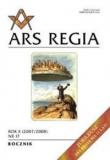
|
Various topics » PSR Poland needs separation of church and state Open letter of the Polish RationalistsThe Polish Rationalists Association advocates separation of State and Church. Religious belief or non-belief should be the private matter of each citizen. Combining religion and politics leads inevitably to abuse and threatens to divide citizens against each other. In recent years the Catholic Church has been increasing its influence and public profile. What’s worse, politicians seem to be seeking the favour of the Church, rather than considering themselves accountable only to the citizens who have elected them. Polish society however, is mature enough to conduct public discussions about the challenges and problems they face without uninvited “spiritual guidance”. Respect for the churches shouldn’t mean accepting their political leadership. Indeed, sociological research shows that Polish society has its own opinions and in many cases these opinions are significantly different from what the Catholic hierarchy is trying to impose. (For instance, a survey found that 64% of Poles were in favour ofabortion “on demand”.) With an increase in education and prosperity we are becoming a society in which the citizens expect to be able to express their own values through the political process and no longer live, (as the old Polish phrase puts it), under “lord and priest”. In the face of progressive secularization, the Polish Catholic Church is trying to use political means to defend its privileged position. According to Church hierarchy, 90% of Polish citizens are obedient Catholic followers who also want to be guided by priests in their public life. The population of believers is, however, extremely diverse and most of the faithful are against the Church’s political activities. It’s worth noting here that for many, Catholicism is mainly a matter of tradition and social convention. As it stands, even if the Polish Catholic Church were to lose its social importance, and its followersto to lose their faith, it would still remain a colossus, as it is an institution with a gigantic ownership and well-developed hierarchical structure. Hence the basic goal in a secularisation program is to cut off the Church from public funds. It’s time for politicians to start looking for the funds needed for social expenditures in the money which is now transferred to the Church. If the Government says that there is no money for IVF, it can hardly maintain that it has enough for chaplains, religion teachers in state schools, the Church Fund, Catholic universities etc. We hope that the Polish voters, when they choose their representatives, will expect them to be accountable to the citizens, and not to any religious institution. In a democracy, laws cannot be made by religious edict, nor can this be allowed curtail human rights, especially womens’ rights. In light of the above, we present a checklist, prepared in consultation with a specialist in religious public law, of the measures necessary to make Poland an ideologically neutral state, with church-state separation and equality of all religious and non-religious organizations. We would like to underline, that it is not an ideological program of complete church-state separation, but a merely list of the most urgent issues, a minimum, which we need to implement immediately in order to restore the basis for a democratic secular state. I. Separation of Church and State 1. Deprivation of public servant status for chaplains in army, Border Guard, Police, Customs Service, Government Protection Bureau, and other public bodies. Withdrawal from agreements on Catholic ministry of the Police, Border Guard and Customs Service as these are anticonstitutional, settled without any legal basis and jeopardizing officers' freedoms of conscience and religion. 2. Giving a status of unequivocally denominational to Cardinal Stefan Wyszynski University and to Christian Academy of Theology and cancellation of financing these two universities from national budget. II. Making the rights of all religions and non-religious worldviews equal 3. Removal of the records regarding „Christian values" from the statutes concerning radio broadcasting and television and education system. [ 1 ] 4. Elimination of the 196th article of Criminal Code regarding punishment of „wounding of religious feelings" or extension of this protection also on non-believers, taking model from German penal code. 5. Changing the act of 17th May 1989 about freedom of conscience and religion guaranties for the purpose of implementing registration rules and entitlements for worldviews (secular) organisations, parallel to those binding religious organisations. 6. Realization by the Government the article 25 point 5 of The Constitution, that is concluding agreements with interested confessional associations other than Roman Catholic and enacting new detailed confessional bills regarding relations between state and particular religious organisations. III. Secular school 7. Quashing the regulation of Ministry of National Education on taking into account a catechesis (religion lesson) mark when counting the average of marks on school report. Establishing separate certificates from catechesis or ethics. 8. Ensuring full voluntarity of learning catechesis in public schools and nurseries (kindergartens). Necessity of amendment or quashing the regulation of Minister of National Education on rules and ways of organizing catechesis teaching in public schools and nurseries. Setting the limits of students obliging a school to organize catechesis teaching in the Education System Act of 1991 (not in a regulation). Lowering hitherto limits to three students in school. Allowing only written statements of will to attending catechesis for the purpose of excluding a presumption that student desires to be catechized. Eliminating a possibility of starting and ending classes with a prayer, with exception of catechesis. Preservation hitherto possibility of students' non-attendance neither to catechesis nor ethics in school. 9. Opposing against attempts to introduce catechesis as an optional (non-mandatory) subject on matura (High School leaving exam). IV. Secular offices, institutions and public space 10. Prohibition of displaying religious symbols in offices and state or local authorities' seats, for example in Sejm, Senate, Presidential Palace, Chancellery of Prime Minister, particular ministries, seats of local and self-government authorities, public schools, nurseries and hospitals, military barracks, post offices, etc. V. Ending financial privileges for the Church 11. Ending the process of giving back properties for confessional associations on hitherto privileged rules, allowing only judicial procedure of vindication of claims. Liquidation of „property commitees" and repeal of „regulating proceedings", as these are contrary to the rights to just and honest trial in civil cases. 12. Liquidation of Church Fund. Taking over financing premiums for social and health insurance by interested subjects themselves, that means by clergy and church institutions. Limitation of tax allowances and exemptions for confessional legal entities and bounding these subjects by regulations of tax law applied to public benefit organizations. 13. Stopping the execution of normative acts enabling financing of church and sacred objects from national budget by, for example, appeal against these acts to Constitutional Tribunal. 14. Quashing statutes regarding financing from national budget pontifical faculties of theology in Warsaw and Wroclaw and Jesuit University of Philosophy and Education „Ignatianum" in Cracow. 15. Liquidation of „church allowance", that is possibility of non-limited counting out donations for charity and protective activities for the benefit of Roman Catholic Church and Orthodox Church by income taxes payers. 16. Starting works on financing confessional associations reform for the purpose of ensuring transparency in financing means.
Footnotes: [ 1 ] Explanation for non-Polish readers - „Education and upbringing — respecting the Christian system of values — for its base takes the universal principles of ethics" — A bit schizophrenic sentence from the Education System Act. And from the Radio and Television Broadcasting Act: Article 4 § 1a: In the meaning of the Act a social broadcaster is a broadcaster who respect the Christian system of values for the base taking the universal principles of ethics. Article 18 § 4: Auditions and other materials should respect religious believes of receivers and especially the Christian system of values. Article 21 § 2 point 6: Public radio and television programs should respect the Christian system of values for the base taking the universal principles of ethics. « PSR (Published: 26-09-2008 )
page 6101 |
||||||||||||||||||||||||||||||||||||||||||||||||||||||||||||||||||||||||
| [ Cooperation ] [ Advertise ] [ Map of the site ] [ F.A.Q. ] [ Store ] [ Sign up ] [ Contact ] The Rationalist © Copyright 2000-2018 (English section of Polish Racjonalista.pl) | ||


